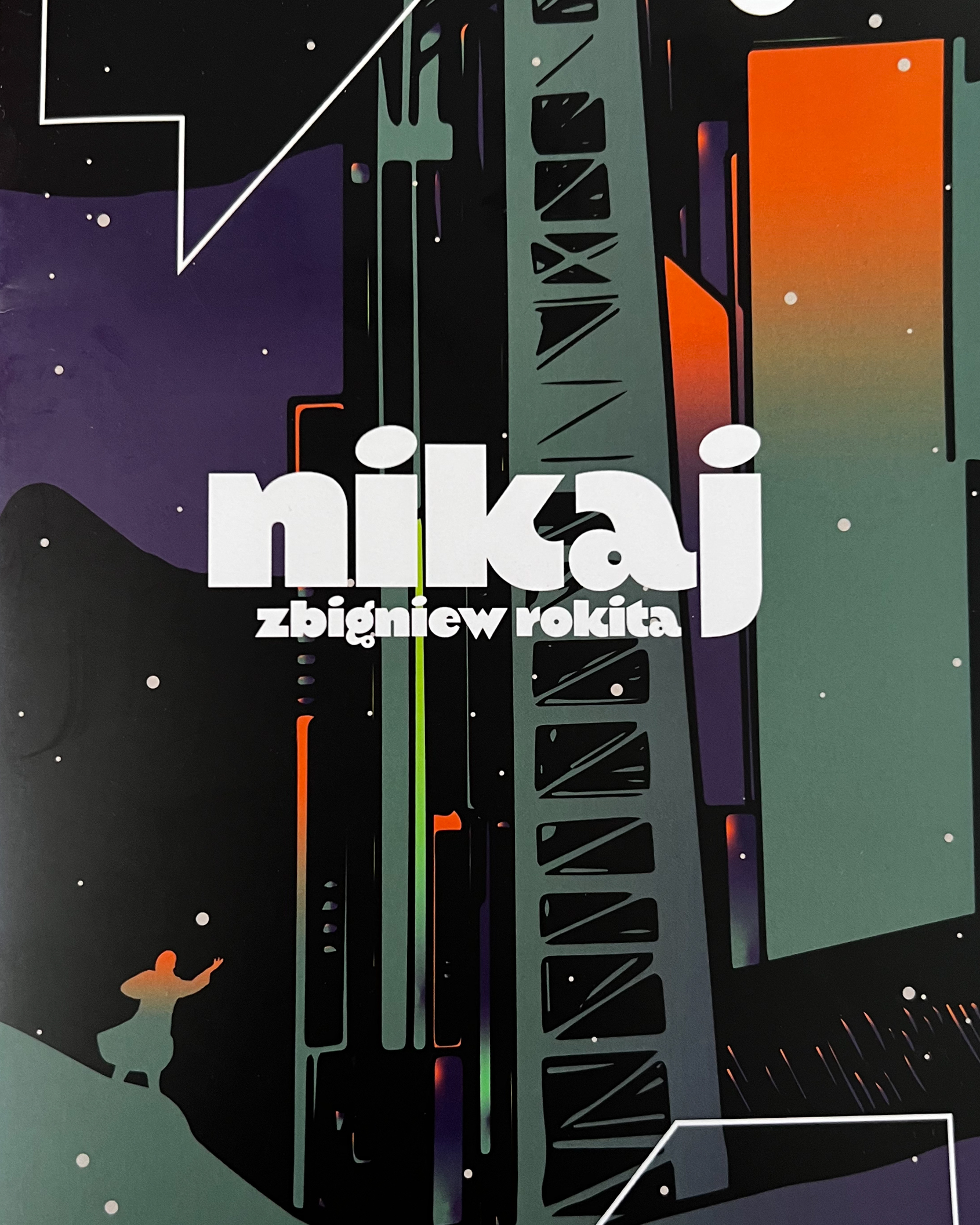
28 Mar Nikaj – dystopian dream about Silesia.
I was born in Sosnowiec – part of Zagłębie region….The opposition between Silesia and Zagłębie was always the source of jokes and sometimes real antagonisms and prejudices. It runs deep in the families there…specially those who live on the border of two regions – the Silesian language is different to Polish, their customs are different. I never understood the whole “fight” between the two regions, having members of the family on both sides, I loved the culture the way they spoke…everything.
The coexistence, the interpenetration of traditions, but also the mutual search for differences has also become the material for the performance of the newest premiere in Zagłębie Theater in Sosnowiec. Zbigniew Rokita’s play called “Nikaj” (translating into “nowhere” in silesian), directed by Robert Talarczyk, was staged as a co-production of the Zagłębie Theater in Sosnowiec and the Śląski Theater in Katowice as part of the “Zagłębie // Silesia” integration project.
The story is set in a dystopian convention, in which we can find both humor and historic and philosophical reflections on small homelands and national belonging.
The world is plunging into chaos since “that day”-the day when a mysterious storm broke out over Poland, cutting out communication of the region with the rest of the country. The undefined phenomenon seems to be a weather anomaly, and at the same time a new liberation movements that want to dominate the country on the Vistula emerge: three xenophobic groups – (true Silesians) Ślązakowcy , (the Great Poles) Wszechpolanie and Zagłębiacy (named after the region of their residence – Zagłębie) – start their activity and war. Each of them wants to take over the others. They alternately become persecutors and persecutors. In all of this chaos, we are witnessing a life of Silesian family with its accompanying neighbour – Zbyszek Pyszczek from Sosnowiec – tries to find keep their life normal in those strange times.
It all results in a strange slapstic comedy: one day a the man from Zagłębie must hide in the closet, from the new social order that wants to execute him, another day its his friends from Silesia that have to hide. In this post-apocalyptic story, the creators boldly break down stereotypes and exaggerate the other ones. The head of the Silesian family is a woman – Regina – a miner, rulling the house a with a heavy hand. Pyjter runs the house, cooks vegetarian meals, which are far from traditional Silesian meat roulades and dumplings. The house is also inhabited by Gryjtek, who is against the Silesian tradition, and Opa ( – a Silesian insurgent, already living for one hundred and twenty-two years, longing for the past times.
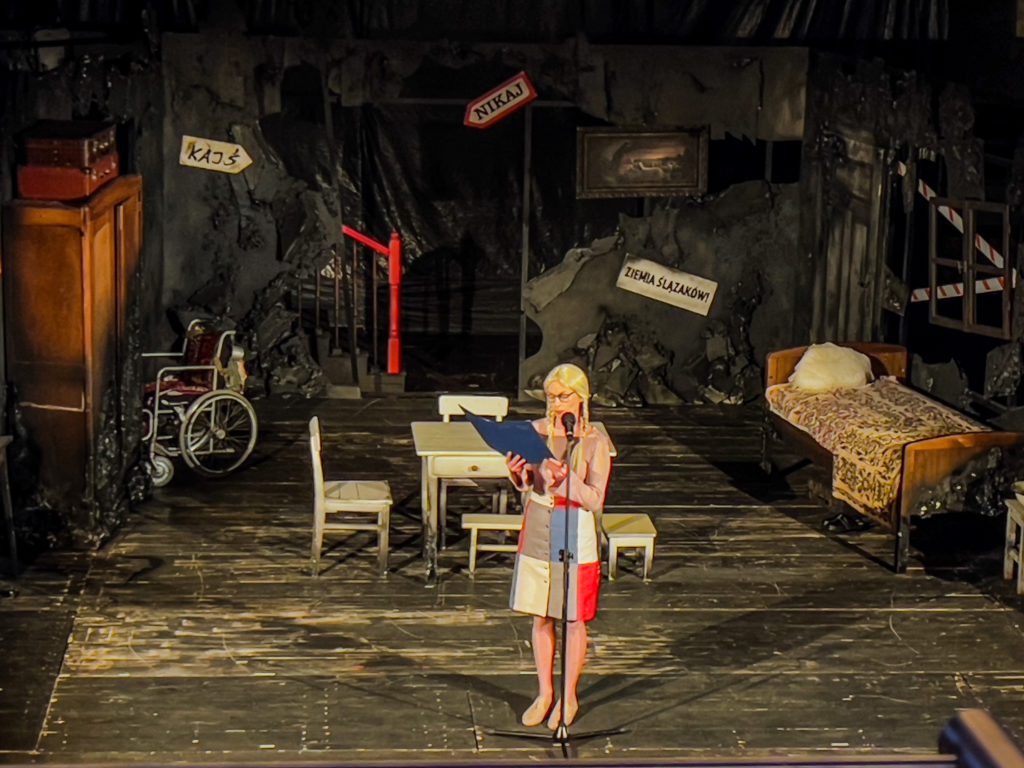
By colliding Silesia and Zagłębie, the creators play with nationalist tendencies that change power in the world of “Nikaj”. Talarczyk and Rokita do it with a grain of salt. The groups differ only in the name and national colours, the common denominator is the boundless desire to make the region omnipotent and better than others who are not like “us”. The pointlessness of the strenuous search for differences in the neighbours from beyond the border is the key theme. Zbyszek is protected by a Silesian family whenever a group of Silesians takes power. At the same time, he cannot feel fully comfortable among his friends, because they constantly talk to him in an incomprehensible language, emphasising the distinctiveness of “their” culture. The inhabitants of Sosnowiec do not remain indebted, do not hide their reluctance to stubbornly linking Zagłębie to Silesia: Silesian Trams – although in Sosnowiec, Koleje Śląskie – although traveling within Zagłębie towns. And although these complaints are half-joking, half-serious, both sides show that despite the will and geographical closeness, differences are still searched for, instead of similarities.
The performance seems to go against this tendency, some of the dialogues will be heard in Polish, some in Silesian, the actors from the two groups have no problems with working together. Etudes performed by Wiesław Sławik (Teatr Śląski), comic characters of Zbyszek (Grzegorz Kwas – Teatr Zagłębia) and Pyjtra (Dariusz Chojnacki – Teatr Śląski), or Regina’s charisma (Barbara Lubos – Teatr Śląski) are the breathtaking.
I have to mention the scenography by Marcel Sławiński and Dominika Żłobińska shows an apartment set on a block of coal, burnt from above.I loved the attention to detail and work that was put into creating this post-apocaliptic scene. There are signs hanging around, suggesting the place of the action. It is probably the title Nikaj, associated with the Katowice district of Nikiszowiec, considered the epitome of Silesia. Towards the end of the play we can see bodies of the hate victims hanging from the celling along with weapons and more destruction around.
Miuosh’s music, along with lighting effects, mark recurring situations. For example, when an insurgent recalls the old times, the light changes its colour to a warmer one, and choral songs ooze from the loudspeakers.
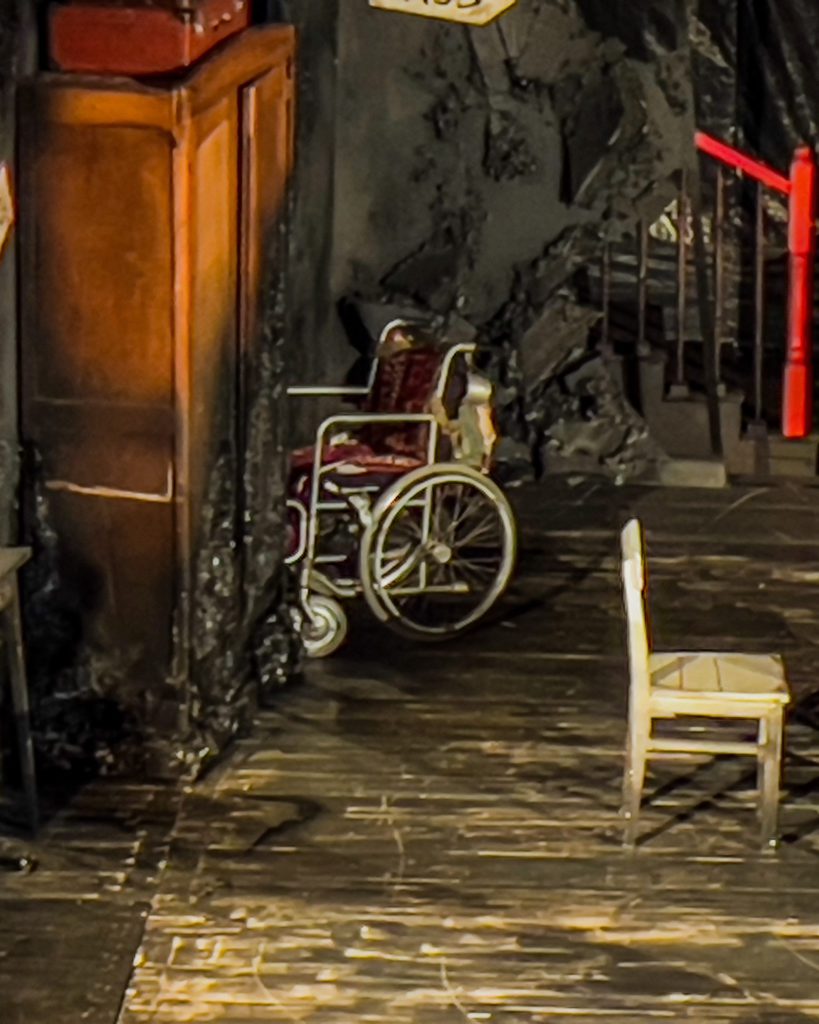
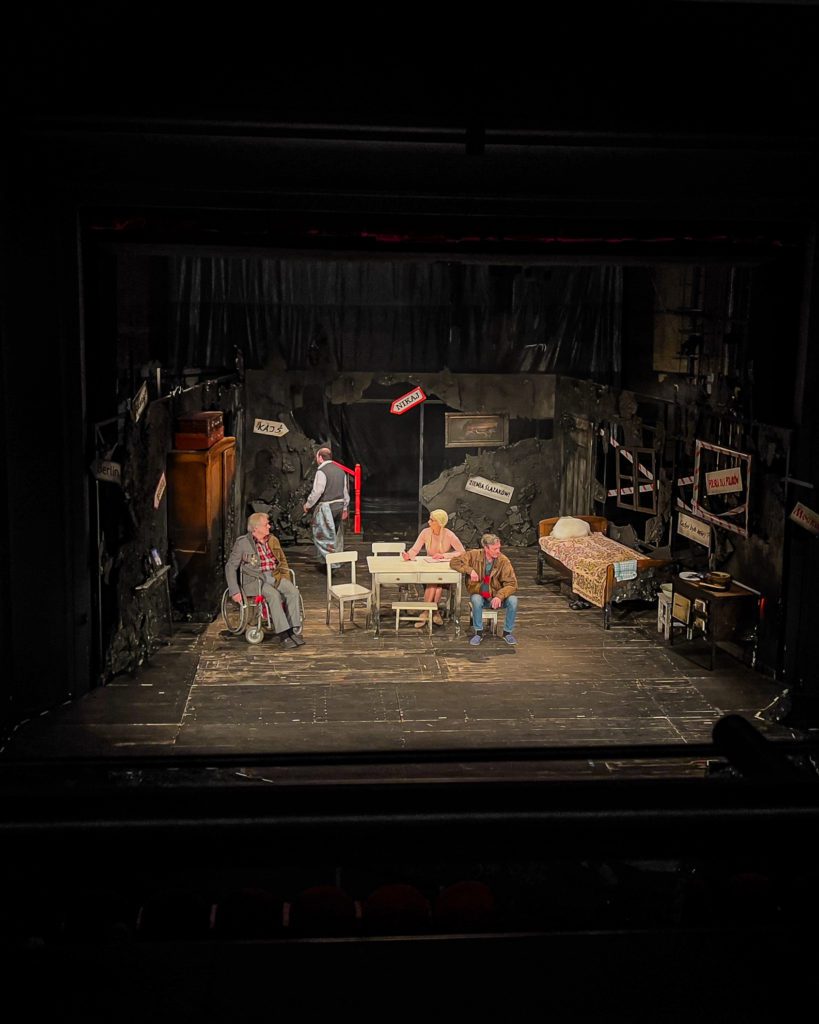
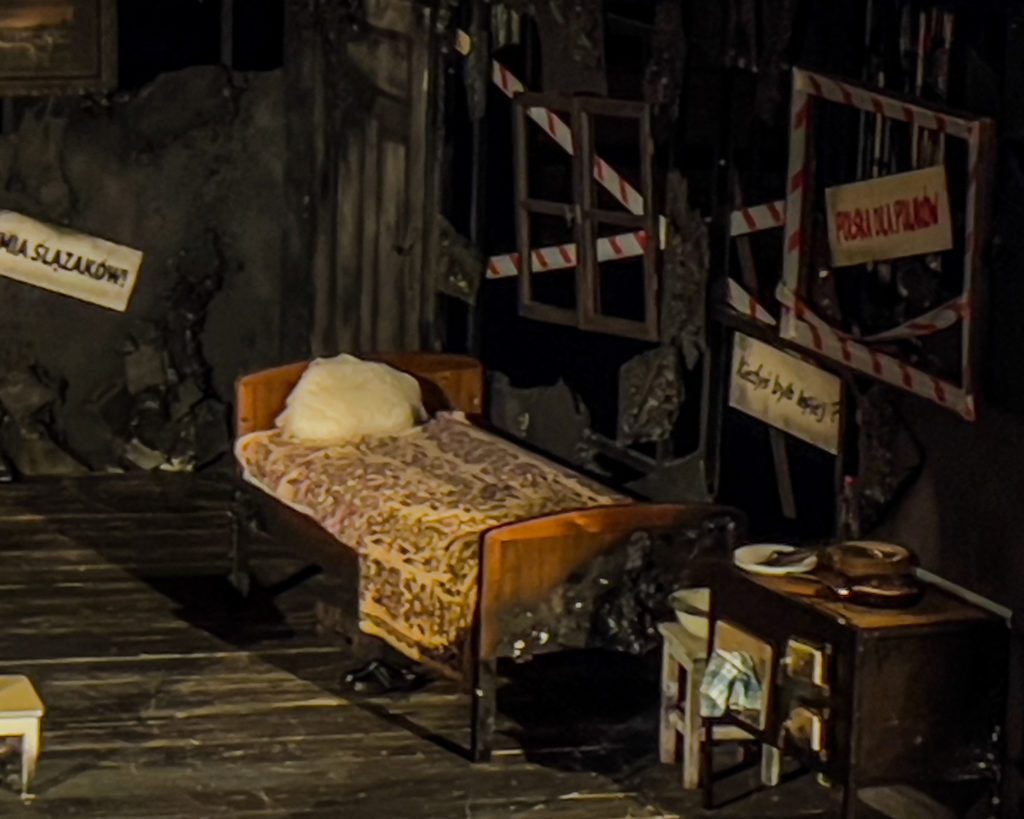
The theme of the identity of Silesia and its people, is treated more seriously. Authors interwoven it into playful convention and into the performance. Regina and Pyjter wonder what determines the history of their region, what they can boast of in front of others, and what is the essence of the Silesian tradition in the uneasy issue of nationality. How to look for the foundations of your culture, if for centuries the region belonged to the Czech Republic or to Germany, and for less than a hundred years you can associate it with Polishness. The creators do not suggest answers to these questions, but leave them to the viewer for reflection.



No Comments